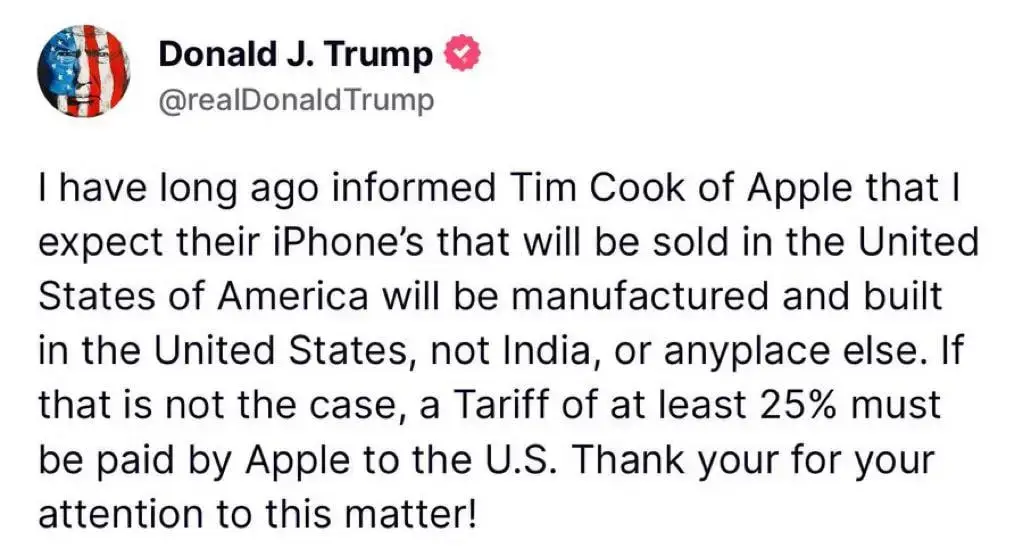A viral tweet - allegedly from Donald J. Trump - has sparked fresh debate in the tech and policy world. The message claims that Trump had told Apple CEO Tim Cook he expects all iPhones sold in the U.S. to be manufactured domestically, not in India or anywhere else. Otherwise, Apple would face a 25% import tariff.

🧾 Tweet Summary (paraphrased):
- iPhones sold in the U.S. must be built in the U.S.
- If not, Apple must pay at least a 25% tariff
- Ends with a typo: “Thank your for your attention”
🔍 Analysis: Political Move or Practical Demand?
✅ Policy Perspective:
- Trump has a history of leveraging tariffs as trade pressure, especially during U.S.-China tensions.
- Bringing tech manufacturing back to the U.S. aligns with his “America First” agenda and post-COVID supply chain concerns.
❌ Reality Check:
- Apple’s supply chain is deeply global, with manufacturing hubs in China, India, and Vietnam.
- Relocating all iPhone production to the U.S. would be massively expensive, time-consuming, and possibly raise prices for American consumers.
- The U.S. lacks the infrastructure, scale, and labor needed for such high-volume electronics production.
🍎 Apple’s Response to Past Pressure:
- Tim Cook has previously met with Trump to negotiate trade and tax concerns.
- Apple is diversifying manufacturing - investing in U.S.-based chip plants (e.g., TSMC in Arizona)
- But full relocation? Highly unlikely in the near term.
🤔 What’s Really Going On?
This may be more of a political message than a literal demand. It speaks to:
- The growing global push to re-shore or near-shore tech manufacturing
- The challenge of balancing national economic goals with global tech realities
📌 Conclusion:
While the idea of “iphones made in america” sounds patriotic, it’s not something apple can realistically achieve anytime soon.
But it does signal increased scrutiny of where and how global tech giants build their products.
In today’s world, an iPhone isn’t just a phone - it’s a global product, assembled from hundreds of international partnerships.